Table of Contents
ToggleIn a world where numbers dance and spreadsheets reign supreme, accounting software is the unsung hero every business needs. Gone are the days of wrestling with stacks of receipts and deciphering hieroglyphic handwriting. With the right software, managing finances can feel less like a chore and more like a well-orchestrated symphony—minus the off-key notes, of course.
Overview of Accounting Software
Accounting software streamlines financial management tasks, making them faster and more accurate. It automates various processes, including invoicing, payroll, and expense tracking. Many users benefit from real-time reports that provide insights into their financial health.
Numerous options exist, each catering to different business needs. Some popular software includes QuickBooks, Xero, and FreshBooks. Each offers unique features that address specific accounting requirements.
Businesses often transition away from manual methods, which can lead to errors and inefficiencies. By adopting software solutions, they enhance accuracy and save time. User-friendly interfaces facilitate navigation, allowing for quicker adoption by team members.
Integration with other business tools represents another advantage. Many accounting systems connect seamlessly with customer relationship management software or inventory management solutions. This connectivity fosters a holistic view of operations and improves data management.
Cloud-based options offer flexibility and accessibility. Users can access their financial data from anywhere, ensuring real-time updates and collaboration among team members. Security measures implemented by software providers further protect sensitive financial information.
Investing in robust accounting software promotes financial stability and informs strategic decision-making. Companies can monitor cash flow, prepare for tax obligations, and ensure compliance with regulations. Investing time in selecting the right software results in significant long-term benefits.
Key Features of Accounting Software

Accounting software comes with several essential features that enhance financial management and operational efficiency.
User-Friendly Interface
A user-friendly interface simplifies navigation and reduces the learning curve for new users. Clear layouts promote quick access to key functions like invoicing and expense tracking. Intuitive dashboards display important financial data at a glance. These interfaces often include drag-and-drop features, making it easy to organize information. Companies find that easy-to-use software fosters better team collaboration and helps maintain productivity.
Customizable Reports
Customizable reports enable businesses to generate specific financial insights tailored to their needs. Users can adjust parameters to create various report formats, such as profit and loss statements or cash flow analyses. These tailored reports enhance decision-making by highlighting critical metrics and trends. Many software solutions also allow users to schedule report generation, ensuring timely updates. Offering this flexibility empowers businesses to monitor performance effectively and make informed choices.
Integration Capabilities
Integration capabilities maximize efficiency by allowing accounting software to connect with other business tools. Many solutions can seamlessly link with CRM systems, e-commerce platforms, and banking applications, creating a unified workflow. This integration streamlines data transfer, reducing the need for manual entry and minimizing errors. Users experience improved data accuracy and better visibility across their operations. Enhanced integration capabilities ultimately support a more cohesive approach to financial management.
Types of Accounting Software
Several types of accounting software cater to various business needs. Two primary categories are cloud-based solutions and on-premise solutions.
Cloud-Based Solutions
Cloud-based accounting software enables users to access financial data from any location with internet connectivity. This flexibility supports remote work and collaboration among teams. Notable examples include QuickBooks Online and FreshBooks. These platforms typically offer subscription models, providing users with updates and support without additional costs. Security measures protect sensitive information through encryption and regular backups. Additionally, cloud solutions allow for easy integration with other applications like payment processors and CRM systems.
On-Premise Solutions
On-premise accounting software operates from a company’s internal servers. It requires initial installation and ongoing maintenance from the IT team. Popular options include Sage 50 and Microsoft Dynamics GP. Users typically benefit from complete control over their data and customization based on specific needs. Implementation costs may be higher initially, but they can reduce long-term expenses depending on usage. On-premise solutions are ideal for businesses prioritizing data security and compliance, as they keep sensitive information within their own infrastructure.
Benefits of Using Accounting Software
Accounting software provides numerous advantages for businesses, enhancing financial management processes. Key benefits include increased efficiency, improved accuracy, and cost-effectiveness.
Increased Efficiency
Increased efficiency ranks among the primary benefits of accounting software. By automating repetitive tasks like invoicing and payroll processing, businesses save significant time. Employees can focus on strategic tasks instead of manual entry or tedious calculations. With real-time data access, teams quickly generate reports, enabling faster decision-making. Software options minimize paperwork, simplifying record-keeping procedures.
Improved Accuracy
Improved accuracy stands as another crucial advantage of accounting software. Automated calculations reduce human error, ensuring data integrity in financial records. Users benefit from features like built-in error checking and validation, which catch discrepancies before they impact reports. Consistent record-keeping promotes compliance with regulations, making audits smooth and efficient. Customizable reports deliver specific insights, helping management analyze performance metrics effectively. Overall, software improves financial health by ensuring accurate data.
Cost-Effectiveness
Cost-effectiveness emerges as a vital characteristic of accounting software. Businesses minimize unnecessary spending by automating various financial tasks and reducing manual labor costs. Many accounting solutions operate on subscription models, allowing companies to choose a plan that fits their budgets. Cloud-based options eliminate the need for extensive IT infrastructure and continuous maintenance. By providing essential insights, software aids in strategic planning, directly impacting the bottom line. Investing in reliable accounting software enhances not just efficiency and accuracy but also overall financial stability.
Popular Accounting Software Options
Various accounting software options cater to diverse business needs, each enhancing financial management with unique features. Below are three popular choices.
QuickBooks
QuickBooks stands out as one of the most widely used accounting software platforms. Small to medium-sized businesses rely on it for managing invoices, tracking expenses, and generating financial reports. User-friendly features facilitate easy navigation, while automated functions reduce the likelihood of errors. Integration with other business tools enhances its capabilities, making it a versatile option. QuickBooks Online offers cloud-based solutions, supporting remote access and collaboration. Pricing plans range from affordable subscriptions to advanced features, allowing businesses to select the best fit for their needs.
Xero
Xero is known for its strong emphasis on collaboration and usability. Designed primarily for small businesses, it provides a real-time view of financial position via intuitive dashboards. Users benefit from seamless integration with numerous applications, enhancing overall operations. Customizable invoicing options let businesses maintain brand consistency, while bank reconciliation tools streamline transaction management. Xero’s subscription-based pricing structure ensures accessibility to support and updates without hidden costs. Furthermore, mobile accessibility allows users to manage finances on the go, making it an attractive choice for modern entrepreneurs.
FreshBooks
FreshBooks focuses on simplifying accounting for freelancers and small business owners. Invoice creation, time tracking, and expense management become straightforward with its clean interface. Clients appreciate the ability to accept online payments, which speeds up cash flow. In addition, FreshBooks offers robust reporting features that aid in understanding financial health at a glance. Collaboration tools enable effective communication between team members and clients. With tiered pricing plans, businesses can select features that suit their requirements, making FreshBooks both cost-effective and adaptable.
Choosing the right accounting software can significantly impact a business’s financial management. By embracing modern solutions, companies can streamline processes and enhance accuracy while reducing the time spent on manual tasks. The right software not only provides valuable insights but also fosters collaboration among team members.
With options like QuickBooks, Xero, and FreshBooks available, businesses can find a solution tailored to their specific needs. The benefits of increased efficiency, improved accuracy, and cost-effectiveness make investing in quality accounting software a wise decision. Ultimately, the right choice leads to better financial stability and informed decision-making, paving the way for sustained growth and success.






